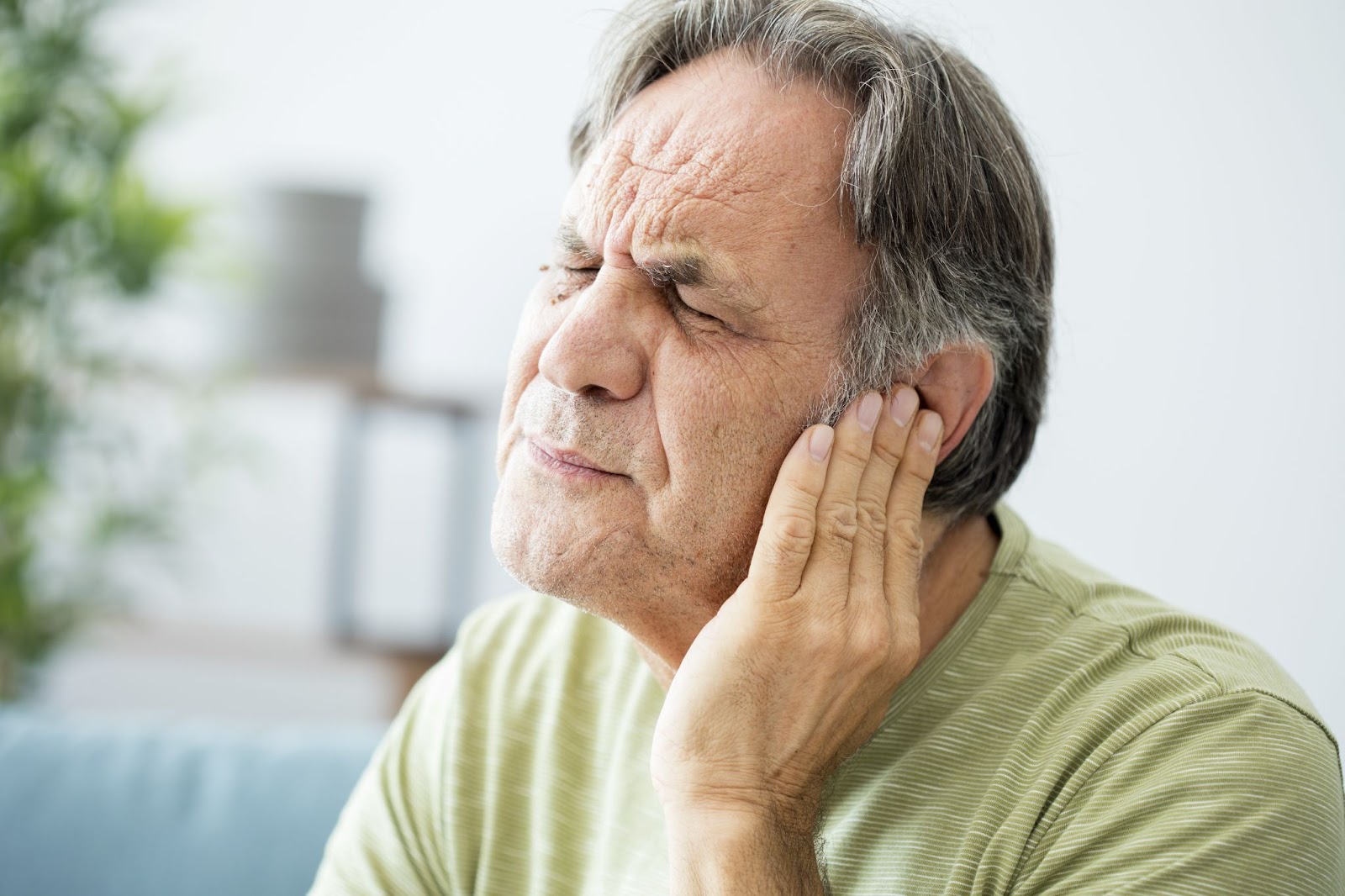
Do you have this condition?
—-Important Message From Our Sponsor—-
Men with ringing ears: avoid this nighttime habit that causes tinnitus

This changes everything doctors thought about tinnitus…
Because recently, specialists at the California Ear Institute uncovered a shocking discovery…
…that this one nighttime habit makes men 3x more likely to suffer from ringing ears!
They could not believe that this seemingly harmless nighttime habit causes IRREVERSIBLE damage to the brain…
Don’t go to sleep before watching this shocking video…and then send it to every man you know!
———-
Bruxism in men
Bruxism, or teeth grinding, is not necessarily seen as a huge problem.
It affects anywhere between 10 to 20% of people, and it typically happens during the night.
Besides associated nuisances like the wear on the teeth, jaw pain, headaches, and annoying your partner, bruxism may cause other problems too.

A french researcher had this to say on the topic of the treatment of bruxism:
“Bruxism and facial tics are most often atypical forms of tetany. Prolonged treatment by magnesium administration nearly always leads to the disappearance and also an improvement in associated functional disorders.”
Tetany, meaning the involuntary contraction of muscles, is a classic sign of low intracellular magnesium.
This is why epsom salts or supplementary magnesium (applied via the skin or taken orally) can be so relaxing…
They actually help increase the levels of magnesium within the cells.
That being said, magnesium deficiency doesn’t happen out of nowhere…
It is intimately linked to thyroid function.
Thyroid hormone (T3), produced by the thyroid gland, is the fundamental regulator of energy production at the cellular level.
Without it, it is impossible for cells to produce sufficient energy, and also achieve full relaxation.
Case in point, a hypothyroid individual will often be unable to relax completely, and this is made clear by the famous Achilles/Ankle relaxation test:
(…) in spite of not being as well-known as symptoms like cold intolerance, weight gain, and constipation, the ankle sign performs well in identifying thyroid problems – Dan Wich (2019)
T3 increases the ability of cells to retain and absorb magnesium.
This allows them to fully relax, and can alleviate such symptoms as restless legs (which is very similar to bruxism).
Currently, there isn’t much in terms of concrete solutions for bruxism, aside from a nightguard.
But it doesn’t have to be that way.
As mentioned before, the clinical experience of Ploceniak indicates that magnesium supplementation nearly always alleviates bruxism problems completely, within a few months.
Magnesium supplements are dirt cheap, and are not really profitable for Big Pharma.
This is probably why it isn’t a more widespread therapeutic option.
The treatment approach, according to Ploceniak, is long-term oral supplementation of 150mg of magnesium 3 times a day.
Significant changes or improvement in bruxism may not be experienced until at least 6 months to a year of treatment.
This benefit can probably come more quickly and be more profound with the concurrent supplementation of thyroid hormone (T3).
At any rate, bruxism should be understood as a symptom of more fundamental issues.
Even if it doesn’t bother you, it makes sense to take it seriously and give this treatment approach a shot.
Bruxism can also be monitored with certain phone apps.
—-Important Message for Men About Magnesium—-
Eat one of these 5 foods every day for more magnesium — increases blood flow, boosts rockiness, and lowers blood pressure

I’ve discovered certain foods naturally rich in magnesium.
And these foods are perfect for giving men the magnesium they need to have great blood flow everywhere in the body…
…especially down there!
See, magnesium is important in relaxing the blood vessels for good blood flow…
So more blood flows to the male member, embiggening things, making them stronger and rockier…
And this way of improving blood flow — it also helps lower blood pressure without treatments from the doc!
———-

Ploceniak C. Bruxisme et magnésium, mon expérience clinique depuis 1980 (Bruxism and magnesium, my clinical experiences since 1980.) Rev Stomatol Chir Maxillofac. 1990;91 Suppl 1:127. French. PMID: 2130443.
https://pubmed.ncbi.nlm.nih.gov/2130443/
Lehvilä P. (1974). Bruxism and magnesium. Literature review and case reports. Proceedings of the Finnish Dental Society. Suomen Hammaslaakariseuran toimituksia, 70(6), 217–224.
https://pubmed.ncbi.nlm.nih.gov/4457918/
Dan Wich (2019). The ankle sign of hypothyroidism. https://www.selftestable.com/ankle-sign-hypothyroidism
Zulewski, H., Müller, B., Exer, P., Miserez, A. R., & Staub, J. J. (1997). Estimation of tissue hypothyroidism by a new clinical score: evaluation of patients with various grades of hypothyroidism and controls. The Journal of clinical endocrinology and metabolism, 82(3), 771–776. https://doi.org/10.1210/jcem.82.3.3810
